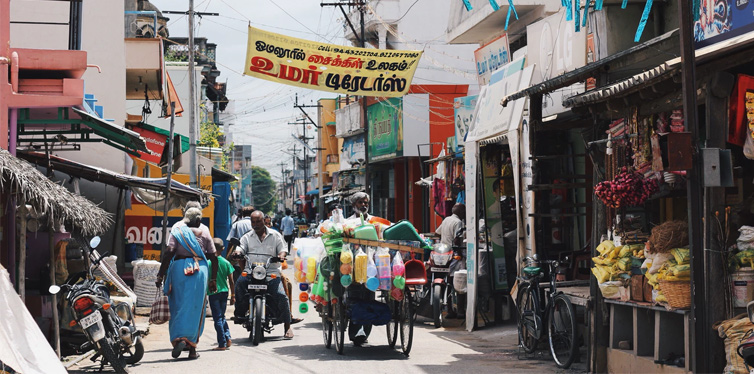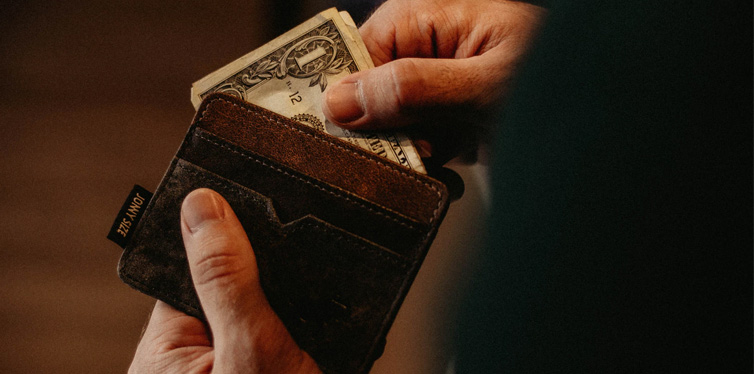How To Haggle Like A Pro
So you’ve landed at your exotic foreign destination, checked in, refreshed yourself a bit and now you’re anxious to get out there and mix it up in the local markets. Maybe you want to get your hands on a leather coat in Florence or maybe you’ve been pining for a Turkish rug or maybe you want to bring home some Thai silk garments. You’re in the right place, you’ve got the means but you’ve also got questions. Primary among them are these:
- Is it okay to haggle?
- If so, what’s the right way to do so?
Where is Haggling Acceptable?
In many places in Europe price tags in street, open air and weekend markets are basically a best-case scenario for the seller. If they put a price on their item (and most will) it’s a kind of aspirational notice that says “In my dream, I would find someone willing to pay me this much and do so without question or complaint”. Of course, we don’t live in a dream. They know that and, hopefully, you know that as well. Therefore, take a look at their dream price and use it as a starting point to bring the price back to the real world.

The UK
While most non-Brits think of the UK as being Europe it’s definitely a world apart in many respects. And haggling is one of them. Whereas you might not think twice about haggling in Rome or even some markets in Paris haggling in many parts of the British capital is frowned upon to say the least. The best thing to do if you enter a market in London is to take some time and get the lay of the land. In other words, watch and listen. If you see and hear bargaining going on then it’s safe to bargain. If what you see is people asking the price and then either buying or not buying don’t upset the apple cart and try to haggle.
Asia
If you head into the Grand Bazaar in Istanbul you’d better be prepared to bargain and bargain hard. Same thing in most every market in Bangkok. Even many of the indoor markets. The general rule in Bangkok is if you don’t see a price then all bets are off and you’re free to haggle to your heart’s content. Even in stores where you do see a price, if it’s not a big name retailer it’s okay to suggest a lower price. If the price is set they’ll simply tell you so.
When it comes to haggling in Bangkok, (or just about anywhere in Southeast Asia for that matter) there’s only one cardinal rule: don’t ever cause the seller to lose face. The seller may lose face if you accuse them of ripping you off or if you get angry and insult them in some way. Cause a Thai vendor to lose face and you will be in for an extremely unpleasant experience that may escalate to dangerous levels quicker than you can say “Sorry”.
General Tips Regarding the Right Way to Haggle
1. Accept That The Rich Foreigner Premium is Going to Happen, Sometimes
Some merchants or service providers in places in Asia Minor and Southeast Asia employ a dual pricing scheme. Some. It’s best to simply accept that before you step off the plane. You may be charged more for street food in some places or you may pay more for a tuk-tuk. If you ask the vendor for a price on a Turkish mosaic lamp or a bolt of Thai silk or an evil eye charm they may tack on ye olde rich foreigner premium. Don’t get bent out of shape about it. If you were in their shoes you’d likely do the exact same thing. Instead of getting pissed be persistent and level-headed and you’ll likely be able to bargain them down to what a local would pay anyway.

2. But Don’t Assume You’re Getting Ripped Off
While some merchants will charge a Westerner more for some items the notion that all locals always pay a fraction of what foreigners pay is simply not true. In fact, in some cases, you’ll wind up paying less than what a local would have paid particularly if you’re buying clothes, shoes, handbags and the like. That’s because in places like Bangkok locals don’t haggle nearly as much as tourists do. But it’s not because they’re getting it for 10% of what you’re paying for it, it’s because some think haggling is distasteful and others think it impolite. Don’t believe it? Go into a shoe store in MBK in Bangkok and browse around. Take note of the posted prices and then watch what the Thais pay. Most of the time they’re paying the posted price. When it’s your turn do a bit of mild haggling. Chances are good that if you’re nice about it and persistent they’ll give you a break on the posted price. That said will local vendors sometimes cut their countrymen a nice break? Of course. But it’s not as pervasive as it’s sometimes made out to be.
3. Be Prepared to Walk
There may come a time when you and the seller are fairly close but just can’t seem to bridge the divide. In instances like that you need to be ready to walk. And we mean walk away and not look back. This is not a tactic that should be overused and it should only be employed if you believe you’ve offered a fair price and they’re just trying to squeeze you for a few extra bucks. In those cases wish them a nice day and walk away. Chances are good you’ll hear “Okay, okay” over your shoulder. In which case you should go back and complete the transaction. Don’t get them to capitulate and then walk away anyway. That would be mean-spirited and may cause them to lose face. In which case you’ll wish you’d stayed home.

4. Play Your Cards Close to Your Vest
Bargaining in many of the world’s markets is far more process than an event. In many ways, it’s a lot like poker where you need to get a feel for what your opponent might be holding before you decide to go all in. As such a little patience will go a long way. Pick up an item and regard it thoroughly before asking for a price. When they give you a price don’t immediately shoot back a counter offer. Instead, raise your eyebrows and say something like “Really? That’s too bad.” And put the item back down. Now they know you’re interested if the price is right. If they’re hot to make the sale they’ll likely ask how much you had in mind. They may balk at your offer but even if they do they’ll often come back with a counter offer and so on and so on. Throughout the process play your hand close to your vest. Show an interest but not too much interest. As long as they’re talking you have a chance to land a bargain. When they stop talking or grab the item back you know you’ve lost them.
5. Shop Later in the Day if You Can
Vendors from Ankara to Manila are the same in many ways. And one of the things most have in common is that they tend to be more agreeable to a less than stellar price toward the end of the day. Especially if it’s been a slow day. So if bargain hunting is a passion for you and your schedule is flexible try going out later in the afternoon. If there’s a caveat here it’s that you need to pick your late day vendors with care. Because while some are willing to entertain just about any offer to ring up a last-minute sale others are tired and grumpy and in no mood to haggle with one more tightwad tourist. So approach late in the day bargaining cautiously.

6. Ask For a Volume Discount
Sometimes a vendor will not move much on the price of a single item but may be much more agreeable to giving you a discount if you buy 2 or 3 of a certain thing. This could work out well for everyone as long as there is some realistic possibility you will actually put 2 or 3 or more of a particular thing to use. Simply buying more than one of something to get a discount doesn’t make any sense if the extra item(s) is/are going to sit in the bottom of your bedroom closet for the next 5 years until you rediscover them and toss them out.
7. Show Them the Money!
A good way to reel in a reluctant merchant is to actually hold out the money. Merchants are there to make money and many won’t be able to resist the lure of cold hard cash staring them in the face. Particularly if it’s anything close to what they insisted was their final price. And that brings us to an important point: don’t whip out the cash as soon as you set your eyes on the item you want. They’ll likely laugh it off and go back to watching TV or talking to their friend. In most cases, you’ll need to wear them down a bit in order for this tactic to be effective. Negotiate. Let them know you’re interested. Get the price down as close as you can to your desired target and if at this point they dig in their heels take out the cash and hold it out. “This is what I have. I need the rest to get back to my hotel.” As we said, if it’s anything close to their final stated price there’s a pretty good chance they’ll relent. But don’t take it personally if they don’t. Just put the cash away and move on.

8. Learn Something About the Products Before Bargaining
If you can demonstrate a certain level of knowledge or perhaps even expertise about the history of Turkish ceramics, their graphic iconography and who are the top ceramic artists working in Turkey today you are likely to find the vendor more agreeable to providing a discount. Likewise, if you venture into the Clignancourt weekend market in the North of Paris you’ll likely get a better price if you know the difference between an 18th-century bracket clock, a 19th-century bracket clock and a short case parlor clock. Of course, this approach only goes so far since no one is going to care if you know the complete history of the baseball cap because, you know, it’s a baseball cap for crying out loud. Same with T-shirts, flip-flops and counterfeit brand name underwear. The point is that if you plan on buying some objects with a lasting value it will pay handsomely to do a bit of research on the items you intend to target before trying to negotiate a fair price. Experts can sniff out someone who doesn’t know what they’re talking about a mile away and aren’t likely to be of a mind to provide such a person with a discount.
9. Have Fun
Always keep in mind that the object of traveling is to engage with the local culture, see the sights, experience some new things and most of all to have fun. This applies just as much to shopping as it does to sailing, dining out and strolling along the banks of the Seine opposite the Eiffel Tower after sunset. Don’t ever take the actions or attitudes of a vendor personally, nor expect them to cater to your personal needs, don’t think they’re above trying to pry a few extra bucks out of you and, conversely, don’t buy into the notion that you’re constantly getting ripped off and paying more than the locals. While it may happen from time to time most of the time in most places the locals are treating you fairly. Got all that? Great! Now get out there and haggle away.










